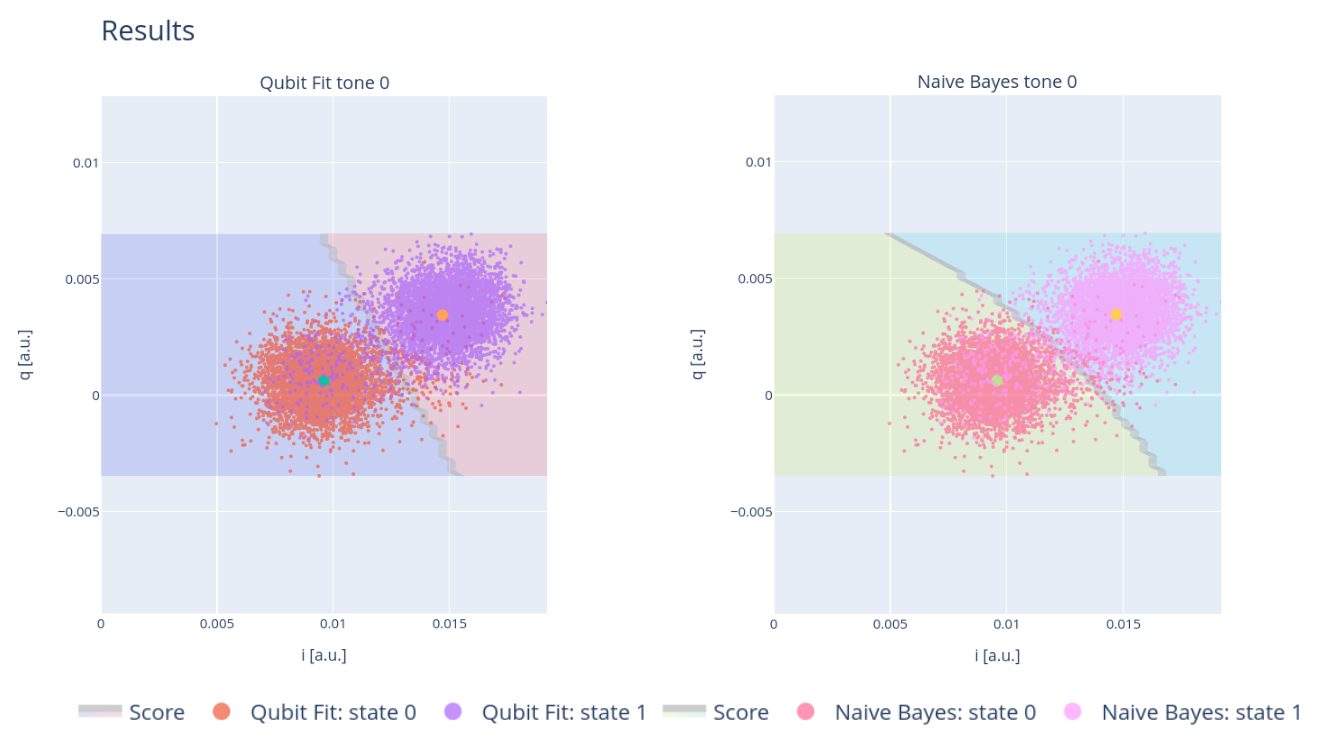Single Shot Experiments¶
In this section we describe the single single shot exepriments for qubit and qutrits.
Qubit Single Shot¶
Acquisition¶
In this experiment, the qubit is preapared multiple times in state \(\ket{0}\) and \(\ket{1}\), for each shot the I and Q values are acquired. According to the theory, if we take into account the noise, for each state we should observe a Gaussian blob in the IQ-plane[15].
Fit¶
This method evaluates the axis which passes through the centroids of the two clusters in the training set, and determines the optimal threshold that maximizes the difference between the cumulative distributions of the projections along the axis. Predicting the state of a new point involves determining its relative position to the threshold based on its projection along the axis. Due to its small complexity, it has high interpretability, but it does not evaluate the probabilities.
This line is defined in terms of the angle \(\theta\) and threshold coordinates. The first one is the angle in radiants formed by the line connecting the centers of the blobs and the Q-axis. After performing the rotation with angle \(-\theta\) and translating such that the coordinate center coincides with the ground state Gaussian center, the threshold is the distance from the center along x-axis that maximize the fidelity [9].
where \(P(i,j)\) is the probability of measuring the qubit in state i but prepeared in state j. With this routine is possible to train different classifiers, plot their ROC curves and evaluating the Area Under the Curves [19].
Parameters¶
- class qibocal.protocols.classification.classification.SingleShotClassificationParameters(unrolling: bool = False, classifiers_list: list[str] | None = <factory>, savedir: str | None = ' ')[source]
SingleShotClassification runcard inputs.
- unrolling: bool = False
Whether to unroll the sequences.
If
Trueit uses sequence unrolling to deploy multiple sequences in a single instrument call.Defaults to
False.
- hardware_average: bool = False
By default hardware average will be performed.
- nshots: int
Number of executions on hardware.
- relaxation_time: float
Wait time for the qubit to decohere back to the gnd state.
Example¶
A possible choice of parameters is the following
- id: single shot classification
operation: single_shot_classification
parameters:
nshots: 5000
classifiers_list: ["qubit_fit", "naive_bayes"]
the result should looks like this
